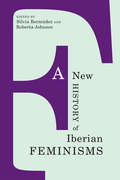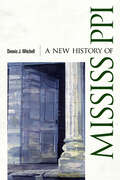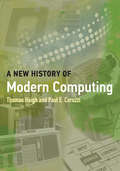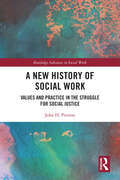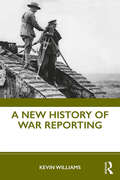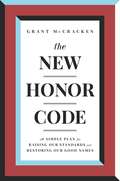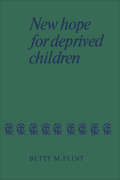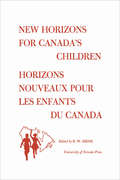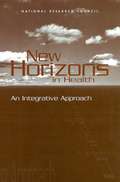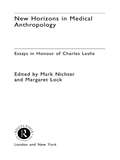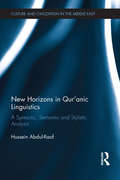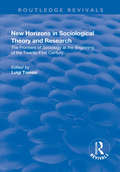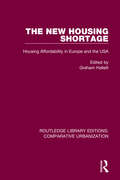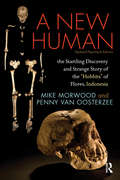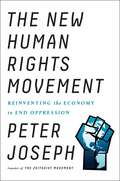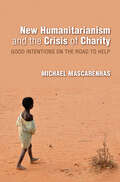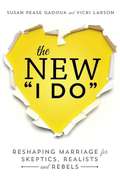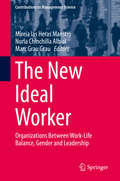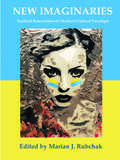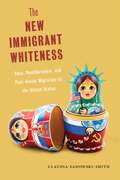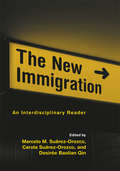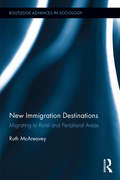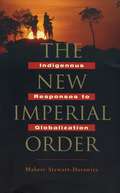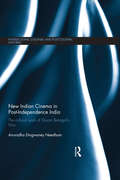- Table View
- List View
A New History of Iberian Feminisms (Toronto Iberic)
by Silvia Bermudez Roberta JohnsonA New History of Iberian Feminisms is both a chronological history and an analytical discussion of feminist thought in the Iberian Peninsula, including Portugal, and the territories of Spain – the Basque Provinces, Catalonia, and Galicia – from the eighteenth century to the present day. The Iberian Peninsula encompasses a dynamic and fraught history of feminism that had to contend with entrenched tradition and a dominant Catholic Church. Editors Silvia Bermúdez and Roberta Johnson and their contributors reveal the long and historical struggles of women living within various parts of the Iberian Peninsula to achieve full citizenship. A New History of Iberian Feminisms comprises a great deal of new scholarship, including nineteenth-century essays written by women on the topic of equality. By addressing these lost texts of feminist thought, Bermúdez, Johnson, and their contributors reveal that female equality, considered a dormant topic in the early nineteenth century, was very much part of the political conversation, and helped to launch the new feminist wave in the second half of the century.
A New History of Mississippi
by Dennis J. MitchellCreating the first comprehensive narrative of Mississippi since the bicentennial history was published in 1976, Dennis J. Mitchell recounts the vibrant and turbulent history of a Deep South state. The author has condensed the massive scholarship produced since that time into an appealing narrative, which incorporates people missing from many previous histories including American Indians, women, African Americans, and a diversity of other minority groups. This is the story of a place and its people, history makers and ordinary citizens alike. Mississippi's rich flora and fauna are also central to the story, which follows both natural and man-made destruction and the major efforts to restore and defend rare untouched areas. Hernando De Soto, Sieur d’Iberville, Ferdinand Claiborne, Thomas Hinds, Aaron Burr, Greenwood LeFlore, Joseph Davis, Nathan Bedford Forrest, James D. Lynch, James K. Vardaman, Mary Grace Quackenbos, Ida B. Wells, William Alexander Percy, William Faulkner, Eudora Welty, Muddy Waters, B.B. King, Elvis Presley, John Grisham, Jack Reed, William F. Winter, Jim Barksdale, Richard Howorth, Christopher Epps, and too many more to list—this book covers a vast and rich legacy. From the rise and fall of American Indian culture to the advent of Mississippi’s world-renowned literary, artistic, and scientific contributions, Mitchell vividly brings to life the individuals and institutions that have created a fascinating and diverse state.
A New History of Modern Computing (History of Computing)
by Thomas Haigh Paul E. CeruzziHow the computer became universal.Over the past fifty years, the computer has been transformed from a hulking scientific supertool and data processing workhorse, remote from the experiences of ordinary people, to a diverse family of devices that billions rely on to play games, shop, stream music and movies, communicate, and count their steps. In A New History of Modern Computing, Thomas Haigh and Paul Ceruzzi trace these changes. A comprehensive reimagining of Ceruzzi's A History of Modern Computing, this new volume uses each chapter to recount one such transformation, describing how a particular community of users and producers remade the computer into something new. Haigh and Ceruzzi ground their accounts of these computing revolutions in the longer and deeper history of computing technology. They begin with the story of the 1945 ENIAC computer, which introduced the vocabulary of "programs" and "programming," and proceed through email, pocket calculators, personal computers, the World Wide Web, videogames, smart phones, and our current world of computers everywhere--in phones, cars, appliances, watches, and more. Finally, they consider the Tesla Model S as an object that simultaneously embodies many strands of computing.
A New History of Social Work: Values and Practice in the Struggle for Social Justice (Routledge Advances in Social Work)
by John H. PiersonThis book provides an overview of the main developments in social work over its 200-year history. From its beginnings in the early 19th century through to the present day, it recounts the efforts to create a fairer, socially just society through its work with individuals and families. Throughout, by focusing on individual cases as well as major ideas behind practice, this book invites the reader to step into the practitioner’s world as it unfolded. Providing a fresh, critical history of social work in Britain, the book covers the practical assistance for families and individuals in poverty in the 19th century; women’s social work with destitute mothers and children; social work’s response to war time needs; the development of specific domains of social work such as hospital social work, psychiatric social workers, moral welfare and children in care; tackling racism; and social work in a market society. The reader encounters the society that social workers and their users wrote about, thought about and sought to create. Covering critical points of dispute along with overarching visions that would take the profession – and society – forward, the book explores the ideologies, moral constructs and social forces that shaped everyday social work. A New History of Social Work will be of interest to all scholars and students of social work and will be particularly relevant for modules on introductions to social work and the foundations of social work.
A New History of War Reporting
by Kevin WilliamsThis book takes a fresh look at the history of war reporting to understand how new technology, new ways of waging war and new media conditions are changing the role and work of today’s war correspondent. Focussing on the mechanics of war reporting and the logistical and institutional pressures on correspondents, the book further examines the role of war propaganda, accreditation and news management in shaping the evolution of the specialism. Previously neglected conflicts and correspondents are reclaimed and wars considered as key moments in the history of war reporting such as the Crimean War (1854-56) and the Great War (1914-18) are re-evaluated. The use of objectivity as the yardstick by which to assess the performance of war correspondents is questioned. The emphasis is instead placed on war as a messy business which confronts reporters and photographers with conditions that challenge the norms of professional practice. References to the ‘demise of the war correspondent’ have accompanied the growth of the specialism since the days of William Howard Russell, the so-called father of war reporting. This highlights the fragile nature of this sub-genre of journalism and emphasises that continuity as much as change characterises the work of the war correspondent. A thematically organised, historically rich introduction, this book is ideal for students of journalism, media and communication.
The New Honor Code: A Simple Plan for Raising Our Standards and Restoring Our Good Names
by Grant McCrackenCultural anthropologist and thought leader Grant McCracken proposes a radical solution for our time of unprecedented scandal: a return to honor. What used to be shocking has somehow become the new normal in our politics, workplaces, and universities. Sexual predators stalk interns at work and teenagers abroad. Parents try to buy a place for their kids in college. Pharmaceutical companies refuse to acknowledge the Opioid epidemic they helped create. Banks issue credit cards no one ordered, ruining the credit scores and reputations of thousands. It happens so frequently that we can no longer dismiss these cases as a few bad apples. Clearly, something in the system is rotten. Most Americans are committed to morality. We share basic standards of decency. And yet, we&’re becoming inured to scandal and shame, and hopeless about the possibility of change. What if we decided to fight it instead? Grant McCracken has a solution—the revival of an ancient idea called honor. Once the moral compass of millions of people for hundreds of years, it has since fallen out of currency just when we need it the most. Grant looks at honor and dishonor as these are expressed in popular culture and at institutions as diverse as Harvard, PBS, and Wells Fargo. He offers practical guidelines for both organizations and individuals looking to restore moral order to their lives.
New Hope for Deprived Children
by Betty FlintNew Hope for Deprived Children is the carefully documented story of the development of a group of children from infancy through early adolescence. Exhibiting the effects of severe institutional deprivation in the early part of their lives, these children became the focus of a therapeutic programme within an institution designed to relieve their serious developmental deficiencies. The programme and its effects confirmed the faith of the researchers involved that recovery to a certain degree was possible, even with an institutional setting. Further recovery was effected by later placement in foster and adoptive homes. The lives of twenty-eight of these children have been recorded and the data analysed. This book presents their stories in both human and scientific terms. The guidance procedures and therapeutic intervention were based on a personality theory of 'security,' which allowed the research and guidance team to provide a consistent frame of reference to all procedures designed to move the children increasingly closer to 'normal' behaviour. The range of adaptation to homes and community reflects the individual capacities of each child and the capacities of each family to sponsor such individuality. Both the group analysis and the individual histories provide fascinating information and, additionally, pose many fundamental questions about human development.
New Horizons for Canada's Children/Horizons Nouveaux pour les Enfants du Canada: Proceedings of the first Canadian Conference on Children/Deliberations de la premiere Conference Canadienna de l'Enfance
by B. HeiseThe first Canadian Conference on Children, held in the province of Quebec in October, 1960, was the culmination of several years of planning and of three years' specific study of projects which dealt with existing programmes for children in Canada. Delegates came from provincial and national organizations and the Conference was supported by a large number of organizations connected with child health, welfare, and education. The programme of the Conference was divided into three sections: plenary sessions, group discussions of the projects, and group discussion of children under three headings: "the early years," "the middle years," and "the transition years." The whole programme covered children from birth to about the age of seventeen. The Proceedings includes the speeches presented at the plenary sessions (by Sir Geoffrey Vickers, Chairman of the Research Committee of the British Mental Health Research Fund; Dr. K.D. Naegele of the University of British Columbia; and Dr. Otto Klineberg of Columbia University); and valuable summaries of discussions by Dr. Murray Ross (York University), Mgr. Irénée Lussier (Université de Montréal), and Dr. N.A.M. MacKenzie (University of British Columbia).
New Horizons in Health: An Integrative Approach
by National Research CouncilBrings together a committee of 15 scientists with backgrounds in the biomedical, social behavioral, and scientific disciplines, who together identify and address a broad set of issues relating to the health of the US population. Themes addressed include predisease pathways, positive health, environmentally induced gene expression, personal ties, collective properties and healthy communities, the influence of inequality on health, population perspectives, interventions, methodology priorities, and research infrastructure. Annotation c. Book News, Inc. , Portland, OR (booknews. com)
New Horizons in Medical Anthropology: Essays in Honour of Charles Leslie (Theory And Practice In Medical Anthropology And International Health Ser.)
by Mark Nichter Margaret LockNew Horizons in Medical Anthropology is a festschrift in honor of Charles Leslie whose influential career helped shape this subfield of anthropology. This collection of cutting-edge essays explores medical innovation and medical pluralism at the turn of the 21st century. The book accomplishes two things: it reflects recent research by medical anthropologists working in Asia who have been inspired by Charles Leslie's writing on such topics as medical pluralism and the early emergence of what has become a globalized biomedicine, the social relations of therapy management, and the relationship between the politics of the state and discourse about the health of populations, illness, and medicine. The book also takes up lesser known aspects of Leslie's work: his contribution as an editor and the role he played in carrying the field forward; his ethics as a medical anthropologist committed to humanism and sensitive to racism and eugenics; and the passion he inspired in his co-workers and students.Charles Leslie is a remarkable and influential social scientist. New Horizons in Medical Anthropology is a fitting tribute to a sensitive scholar whose theories and codes of practice provide an essential guide to future generations of medical anthropologists.
New Horizons in Qur'anic Linguistics: A Syntactic, Semantic and Stylistic Analysis (Culture and Civilization in the Middle East)
by Hussein Abdul-RaofNew Horizons in Qur'anic Linguistics provides a panoramic insight into the Qur'anic landscape fenced by innate syntactic, semantic and stylistic landmarks where context and meaning have closed ranks to impact morphological form in order to achieve variegated illocutionary forces. It provides a comprehensive account of the recurrent syntactic, stylistic, morphological, lexical, cultural, and phonological voids that are an iceberg looming in the horizon of Qur'anic genre. It is an invaluable resource for contrastive linguistics, translation studies, and corpus linguistics. Among the linguistic topics are: syntactic structures, ellipsis, synonymy, polysemy, semantic redundancy, incongruity, and contrastiveness, selection restriction rule, componential features, collocation, cyclical modification, foregrounding, backgrounding, pragmatic functions and categories of shift, pragmatic distinction between verbal and nominal sentences, morpho-semantic features of lexical items, context-sensitive word and phrase order, vowel points and phonetic variation. The value of European theoretical linguistics to the analysis of the Qur’anic text at a macro level has been overlooked in the academic literature to date and this book addresses this research gap, providing a key resource for students and scholars of linguistics and specifically working in Arabic or Qur’anic Studies.
New Horizons in Sociological Theory and Research: The Frontiers of Sociology at the Beginning of the Twenty-First Century (Routledge Revivals)
by Luigi TomasiThis title was first published in 2001. This book tackles the important issue of the tasks that confront sociology in the third millennium. It examines the sociological interpretations of the World-Wide revolution which - amid unprecedented scientific and technological progress and the globalization of markets - has generated new inequalities, poverty, structural unemployment and mass conditionings. A number of the most distinguished living sociologists (including Boudon, Beck, Eisenstadt, Tiryakain, Wieviorka) furnish profound and innovative interpretations of changes in world society, while outlining the frontiers of sociological research for the 21st Century. The contributions to the book not only prompt reflection on the structure and organization of sociological research, but also revitalize sociological inquiry by conducting original and stimulating analysis of theoretical and methodological issues - an undertaking essential for the survival of the discipline itself.
The New Housing Shortage: Housing Affordability in Europe and the USA
by Graham HallettOriginally published in 1993, this book is a detailed comparative examination of the housing issue by housing experts, looking at the USA, UK, Germany, the Netherlands and France. The volume offers an excellent blend of critical analysis and practical policy recommendations, including a better targeting of tax concessions, a move back to social housing more diverse than in the past and measures for reducing homelessness. Perennial issues which remain as pertinent today as when the book was first published are also discussed: homelessness, housing affordability for people on low incomes, changes in housing markets.
A New Human: The Startling Discovery and Strange Story of the "Hobbits" of Flores, Indonesia, Updated Paperback Edition
by Mike Morwood Penny Van OosterzeeIn the most revolutionary archaeological find of the new century, an international team of archaeologists led by Mike Morwood discovered a new, diminutive species of human on the remote Indonesian island of Flores. Nicknamed the "Hobbit," this was no creation of Tolkien's fantasy. The three foot tall skeleton with a brain the size of a chimpanzee's was a tool-using, fire-making, cooperatively hunting person who inhabited Flores alongside modern humans as recently as 13,000 years ago. This book is Morwood's description of this monumental discovery and the intense study that has been undertaken to validate his view of its relationship to our species. He chronicles the bitter debates over Homo Floresiensis, the objections (some spiteful) of colleagues, the theft and damage of some of the specimens, and the endless battle against government and academic bureaucracies that hindered his research. This updated paperback edition contains an epilogue that reports on the most recent debates, findings, and analyses of this amazing discovery.
The New Human Rights Movement: Reinventing the Economy to End Oppression
by Peter JosephSociety is broken. We can design our way to a better one. In our interconnected world, self-interest and social-interest are rapidly becoming indistinguishable. If current negative trajectories remain, including growing climate destabilization, biodiversity loss, and economic inequality, an impending future of ecological collapse and societal destabilization will make "personal success" virtually meaningless. Yet our broken social system incentivizes behavior that will only make our problems worse. If true human rights progress is to be achieved today, it is time we dig deeper—rethinking the very foundation of our social system. In this engaging, important work, Peter Joseph, founder of the world's largest grassroots social movement—The Zeitgeist Movement—draws from economics, history, philosophy, and modern public-health research to present a bold case for rethinking activism in the 21st century. Arguing against the long-standing narrative of universal scarcity and other pervasive myths that defend the current state of affairs, The New Human Rights Movement illuminates the structural causes of poverty, social oppression, and the ongoing degradation of public health, and ultimately presents the case for an updated economic approach. Joseph explores the potential of this grand shift and how we can design our way to a world where the human family has become truly sustainable. The New Human Rights Movement reveals the critical importance of a unified activism working to overcome the inherent injustice of our system. This book warns against what is in store if we continue to ignore the flaws of our socioeconomic approach, while also revealing the bright and expansive future possible if we succeed. Will you join the movement?
New Humanitarianism and the Crisis of Charity: Good Intentions on the Road to Help (Framing the Global)
by Michael Mascarenhas“An excellent addition to courses on development, inequality, public policy, and globalization, and it could . . . be read by an audience beyond sociologists.”—American Journal of SociologySoaring poverty levels and 24-hour media coverage of global disasters have caused a surge in the number of international non-governmental organizations that address suffering on a massive scale. But how are these new global networks transforming the politics and power dynamics of humanitarian policy and practice? In New Humanitarianism and the Crisis of Charity, Michael Mascarenhas considers that issue using water management projects in India and Rwanda as case studies. Mascarenhas analyzes the complex web of agreements ?both formal and informal?that are made between businesses, governments, and aid organizations, as well as the contradictions that arise when capitalism meets humanitarianism.“Insightful . . . provides a scathing critique of the new humanitarianism.” —University of Chicago Press Journals
The New I Do: Reshaping Marriage for Skeptics, Realists and Rebels
by Vicki Larson Susan Pease GadouaIf half of all cars bought in America each year broke down, there would be a national uproar. But when people suggest that maybe every single marriage doesn't look like the next and isn't meant to last until death, there's nothing but a rash of proposed laws trying to force it to do just that.In The New I Do, therapist Susan Pease Gadoua and journalist Vicki Larson take a groundbreaking look at the modern shape of marriage to help readers open their minds to marrying more consciously and creatively. Offering actual models of less-traditional marriages, including everything from a parenting marriage (intended for the sake of raising and nurturing children) to a comfort or safety marriage (where people marry for financial security or companionship), the book covers unique options for couples interested in forging their own paths.With advice and quizzes to help readers decide what works for them, The New I Do acts as a guide to thinking outside the marital box and the framework for a new debate on marriage in the 21st century.
The New Ideal Worker: Organizations Between Work-Life Balance, Gender and Leadership (Contributions to Management Science)
by Mireia las Heras Maestro Nuria Chinchilla Albiol Marc Grau GrauMany managers and organizations still assume that employees who devote long hours to their jobs with no family interference are “ideal workers”. However, this assumption has negative consequences for employees, their families and, more interestingly, for their organizations. This book provides a wealth of empirical evidence from around the globe, as well as innovative conceptual frameworks, to help practitioners and researchers alike to go beyond the classic notion of the “ideal worker” and to rethink what companies actually need from their employees. As it demonstrates, doing so will be beneficial for countless men and women, and for society at large.
New Imaginaries: Youthful Reinvention of Ukraine's Cultural Paradigm
by Marian J. RubchakHaving been spared the constraints imposed on intellectual discourse by the totalitarian regime of the past, young Ukrainian scholars now engage with many Western ideological theories and practices in an atmosphere of intellectual freedom and uncensored scholarship. Displacing the Soviet legacy of prescribed thought and practices, this volume’s female contributors have infused their work with Western elements, although vestiges of Soviet-style ideas, research methodology, and writing linger. The result is the articulation of a “New Imaginaries” — neither Soviet nor Western — that offers a unique approach to the study of gender by presenting a portrait of Ukrainian society as seen through the eyes of a new generation of feminist scholars.
The New Immigrant Whiteness: Race, Neoliberalism, and Post-Soviet Migration to the United States (Nation of Nations #10)
by Claudia Sadowski-SmithExplores the racialization of immigrants from post-Soviet states and the nuances of citizenship for this new diaspora. Mapping representations of post-1980s immigration from the former Soviet Union to the United States in interviews, reality TV shows, fiction, and memoirs, Claudia Sadowski-Smith shows how this nationally and ethnically diverse group is associated with idealized accounts of the assimilation and upward mobility of early twentieth-century arrivals from Europe. As it traces the contributions of historical Eastern European migration to the emergence of a white racial identity that continues to provide privileges to many post-Soviet migrants, the book places the post-USSR diaspora into larger discussions about the racialization of contemporary US immigrants under neoliberal conditions. The New Immigrant Whiteness argues that legal status on arrival––as participants in refugee, marriage, labor, and adoptive migration–– impacts post-Soviet immigrants’ encounters with growing socioeconomic inequalities and tightened immigration restrictions, as well as their attempts to construct transnational identities. The book examines how their perceived whiteness exposes post-Soviet family migrants to heightened expectations of assimilation, explores undocumented migration from the former Soviet Union, analyzes post-USSR immigrants’ attitudes toward anti-immigration laws that target Latina/os, and considers similarities between post-Soviet and Asian immigrants in their association with notions of upward immigrant mobility. A compelling and timely volume, The New Immigrant Whiteness offers a fresh perspective on race and immigration in the United States today.
The New Immigration: An Interdisciplinary Reader
by Carola Suarez-Orozco Marcelo Suarez-Orozco Desiree Baolian Qin-HilliardAt the turn of the millennium, the United States has the largest number of immigrants in its history. As a consequence, immigration has emerged once again as a subject of scholarly inquiry and policy debate. This volume brings together the dominant conceptual and theoretical work on the "New Immigration" from such disparate disciplines as anthropology, demography, psychology, and sociology. Immigration today is a global and transnational phenomenon that affects every region of the world with unprecedented force. Although this volume is devoted to scholarly work on the new immigration in the U.S. setting, any of the broader conceptual issues covered here also apply to other post-industrial countries such as France, Germany, and Japan.
New Immigration Destinations: Migrating to Rural and Peripheral Areas (Routledge Advances in Sociology)
by Ruth McAreaveyCurrent population movements involve both established and new destinations, often encompassing marginal and rural communities and resulting in a whole new set of issues for these communities. New Immigration Destinations examines structural forces and individual strategies and behaviour to highlight the opportunities and challenges for ‘new’ destination areas arising from new economic and cultural mobility. Representing a "second wave" in studies of in-migration, this volume examines patterns in "non-traditional" rural and peripheral migration destinations, with a particular case study on Northern Ireland. Indeed, focusing mainly on events in the host society, this book shows how processes of migrant incorporation are complex and rely on multifarious influences including the state, community, individuals and families. Accordingly, the book develops of migration and social integration within rural/peripheral destinations. This subsequently provides clarification of many of the contested concepts including transnationalism; integration, acculturation and assimilation; ‘new’ destinations; and migrants and ethnic minorities. Focusing on the local and the micro with a strong sense of research, social and policy reality, this timely volume critically engages with original theories of migration, thus providing a much fuller conceptual and theoretical understanding that is required in the emerging field of migration studies within a rapidly changing and uncertain world. This book’s interdisciplinary nature will appeal to policymakers, scholars, and both undergraduate and postgraduate students in a range of disciplines including Sociology (Race and Ethnic Studies), Human Geography (Migration, Demography), Political Economy and Community Development.
The New Immigration Federalism
by Pratheepan GulasekaramSince 2004, the United States has seen a flurry of state and local laws dealing with unauthorized immigrants. Though initially restrictionist, these laws have recently undergone a dramatic shift toward promoting integration. How are we to make sense of this new immigration federalism? What are its causes? And what are its consequences for the federal-state balance of power? In The New Immigration Federalism, Professors Pratheepan Gulasekaram and S. Karthick Ramakrishnan provide answers to these questions using a mix of quantitative, historical, and doctrinal legal analysis. In so doing they refute the popular 'demographic necessity' argument put forward by anti-immigrant activists and politicians. Instead, they posit that immigration federalism is rooted in a political process that connects both federal and subfederal actors: the Polarized Change Model. Their model captures not only the spread of restrictionist legislation but also its abrupt turnaround in 2012, projecting valuable insights for the future.
The New Imperial Order: Indigenous Responses to Globalization
by Makere Stewart-HarawiraStewart-Harawira (educational policy studies, U. of Alberta, Canada) interweaves the emergence of the global international political and economic order with indigenous people's experiences of that order; his central themes are the marginalization of indigenous sovereignty and self-determination and the ongoing subjugation of indigenous ontologies which could be important to alternative frameworks of global order. He discusses the emergence of international law, historicizes the construction of the multilateral economic order, and discusses indigenous resistance strategies within the international political arena and their influence on international law. He also looks at the shifting role of the state in the development of new regional formulations and draws on Hardt and Negri's Empire to advocate for an ontology of world order informed by indigenous ideas. Distributed in the US by Palgrave Macmillan. Annotation ©2006 Book News, Inc., Portland, OR (booknews.com)
New Indian Cinema in Post-Independence India: The Cultural Work of Shyam Benegal’s Films (Intersections: Colonial and Postcolonial Histories)
by Anuradha Dingwaney NeedhamShyam Benegal is an Indian director and screenwriter whose work is considered central to New Indian cinema. By closely analysing several of Benegal’s films, this book provides an understanding of India’s post-independence history. The book examines the filmmaker’s focus on women by highlighting his subtle and critical engagement with a truism of Indian nationalism: women’s centrality to the (nation-) state’s negotiation with modernity. It looks at the importance Benegal accords to history – its little known, contested, or iconic events and figures – in crafting national culture and identities, and goes on to discuss the filmmaker’s nuanced representation of the developmental agendas of the nation-state. The book presents an account of the relationship of historical film and fiction to official history, and provides a fuller understanding of Indian cinema, and how it is shaped by as well as itself shapes national imperatives. Filling a gap in the literature, the book offers an analysis of cinematic treatment of post-independence narratives and gives important insights into the imagination of the time. It is a useful contribution for students and scholars of Film Studies, South Asian History and South Asian Culture.
